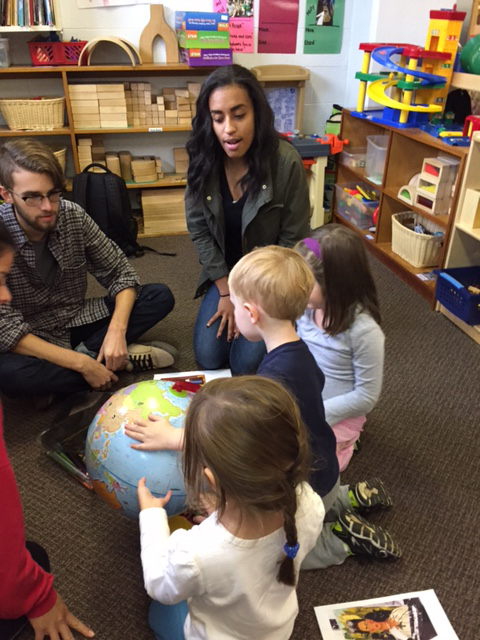
By Carley Thieret | Student Columnist

“Traveling: It leaves you speechless, then turns you into a storyteller,” said Ibn Battuta.
The same can be said about a study abroad program. Studying abroad allows students to experience a new culture, system of education and way of life, and come back to America with skills and experiences that will benefit them in their future careers. Studying abroad not only provides an environment that students cannot experience in a classroom in the United States, but it makes them more marketable for jobs and opportunities post-graduation.
I spent this summer studying at The Pontifical University of Salamanca in Salamanca, Spain. My courses included Spanish grammar and Spanish culture, but I believe in those six weeks I learned equally as much about myself as I did about Spain. The lessons learned through a study abroad program can be easily translated into the workforce, making those who have lived abroad for a period of time quality candidates.
Tolerance. Studying abroad teaches tolerance. Tolerance for a way of life different than our own, for a culture that is unfamiliar. It teaches us to be open to the idea that what might not be “normal” to us is completely normal to other people. In Salamanca we lived with host families, many of whom did not know any English. It could be frustrating at times trying to understand what my host mother was trying to communicate. At home I am used to showering whenever; in Spain we could not shower after a certain time at night. Being tolerant of the people around me is a skill I can practice in the workplace, and practicing it halfway around the world was a good start.
Respect. Being in a new place reinforces the need to respect another person’s home, country and culture. Studying abroad teaches students new customs, how they differ from the United States and how to embrace them while living abroad. Dr. Boncho Dragiyski, a Spanish professor at Duquesne who has led the trip to Spain for the last two years, reinforced this idea.
“Studying abroad allows students to get to know another culture and develop an appreciation for it,” he said. “This first-hand contact with the foreign culture further expands students’ worldview and they return home with a deeper understanding of other ways of living, of thinking, of everything.”
In the United States everything in life moves quickly. We always rush from one place to the other, worrying about the next thing we have to do. In Spain, everything is done at a slower pace. They eat three meals a day sitting at the table. There is no breakfast to-go or grabbing a granola bar as they run out the door. I learned to respect their culture by trying new things. Fish nuggets and mayonnaise as salad dressing weren’t that great, but potato tortillas were amazing.
Respecting another culture can mirror respecting people you encounter in the workplace, at school or in life in general. We aren’t going to like every person we meet, every task our boss assigns us or every coworker we have to collaborate with. By respecting other people’s ideas, thoughts and ways of life, we can learn more about who they are and gain a better understanding of why they do what they do.
Although studying abroad offers many positives, there are also negatives. But in the end these negative aspects help us grow and learn about ourselves and others. They make us ready to overcome challenges that we may face in the workforce or in our everyday lives. It is hard to be away from home for a long period of time, especially while experiencing change and adversity. I get homesick easily, and there were times that missing family and friends at home was overwhelming. For someone who could be considered a homebody, spending six weeks across the world overcame a fear of mine, and that is a quality I can take with me through any endeavor post-graduation.
College teaches us a lot, but studying abroad opens doors to opportunities that not only give us educational experiences, but help us grow and develop as human beings as well.




